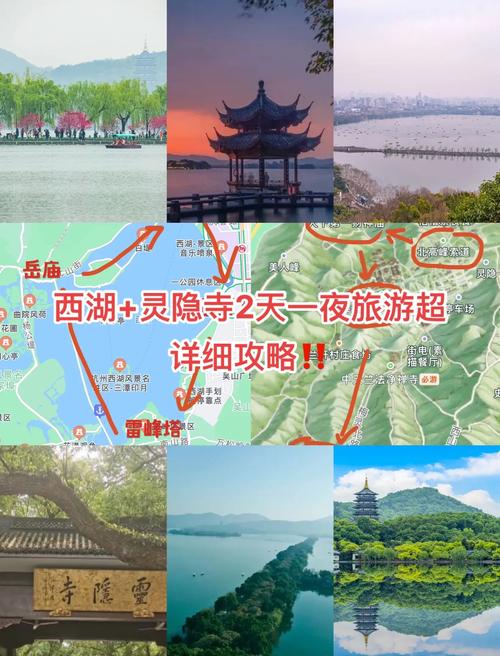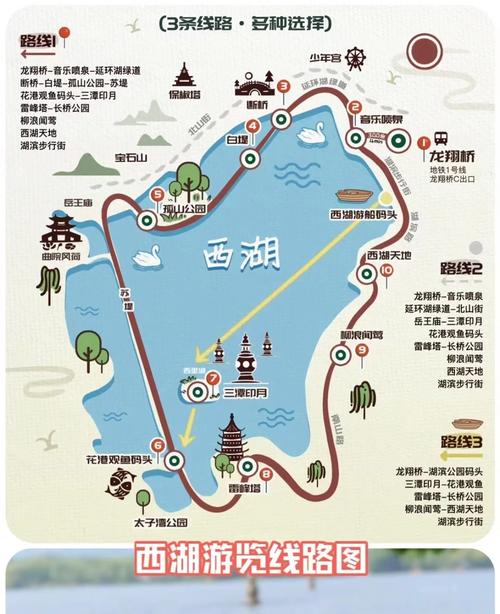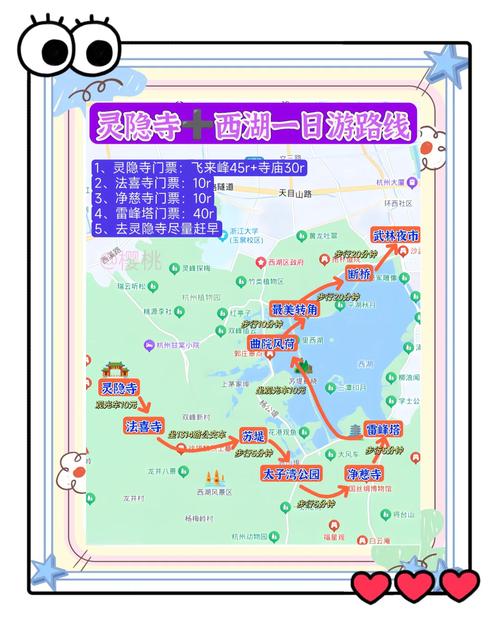路线总览
- 总里程: 约 1300 - 1500 公里
- 建议天数: 7-10天(不包含在西安的游玩时间)
- 路线特点: 沪渝高速、沪蓉高速为主,路况极佳,沿途串联起安徽、湖北、河南多个省份,自然风光与人文景观结合得非常好。
- 核心路线: 杭州 → 安徽(黄山/宏村) → 湖北(武汉/神农架) → 河南(洛阳/少林寺) → 西安
分段行程与景点推荐
你可以根据自己的兴趣和时间,选择性地游览以下景点。

(图片来源网络,侵删)
第一段:杭州 → 黄山 / 宏村 (约 4-5 小时,300公里)
这是离开江南的第一站,直接进入徽派建筑的腹地。
-
核心景点:
- 黄山风景区:
- 简介: “五岳归来不看山,黄山归来不看岳”,黄山以“奇松、怪石、云海、温泉”四绝闻名于世,是中国最著名的山岳风景区之一。
- 自驾建议: 将车停在黄山汤口镇的换乘中心,然后乘坐景区大巴上山,山上住宿较贵,建议当天往返,或至少住一晚看日出。
- 宏村:
- 简介: “中国画里的村庄”,整个村落以牛形布局,月沼和南湖是精华所在,白墙黛瓦,小桥流水,是体验徽派建筑和慢生活的绝佳去处。
- 自驾建议: 宏村景区有停车场,非常方便,可以住一晚,感受清晨和夜晚的宁静。
- 西递村:
- 简介: 与宏村齐名的徽派古村落,布局更为严谨,牌坊、祠堂、民居保存完好,更显古朴典雅。
- 自驾建议: 距离宏村不远,可以安排在同一天游览。
- 黄山风景区:
-
住宿建议: 黄山汤口镇、宏村内或宏村周边的民宿。
-
美食推荐: 毛豆腐、臭鳜鱼、徽州烧饼、石耳炖鸡。
 (图片来源网络,侵删)
(图片来源网络,侵删)
第二段:黄山/宏村 → 武汉 (约 5-6 小时,450公里)
从安徽进入湖北,第一站直达“江城”武汉,感受大都市的活力与江湖气息。
-
核心景点:
- 黄鹤楼:
- 简介: “故人西辞黄鹤楼,烟花三月下扬州”,江南三大名楼之一,登楼可远眺长江大桥和武汉三镇的风光。
- 东湖风景区:
- 简介: 中国最大的城中湖,湖面广阔,风景秀丽,可以骑行、散步,或乘船游览,听涛景区、磨山景区各有特色。
- 户部巷:
- 简介: 武汉最著名的小吃街,汇集了热干面、豆皮、糊汤粉、武昌鱼等各式各样的小吃,是吃货的天堂。
- 湖北省博物馆:
- 简介: 如果对历史感兴趣,这里是必到之处,馆内的“越王勾践剑”、“曾侯乙编钟”和“郧县人头骨化石”是镇馆之宝,尤其是编钟表演,非常震撼。
- 黄鹤楼:
-
住宿建议: 汉口或武昌区的酒店,交通便利。
-
美食推荐: 热干面、三鲜豆皮、面窝、武昌鱼、小龙虾。
 (图片来源网络,侵删)
(图片来源网络,侵删)
第三段:武汉 → 神农架 / 十堰 (约 4-5 小时,350公里)
这是从平原进入山区的关键一段,风光将发生巨大变化。
-
核心景点:
- 神农架:
- 简介: “华中屋脊”,是联合国教科文组织认定的“世界生物圈保护区”,这里有原始森林、高山草甸、峡谷溪流,还有野人传说,夏季是避暑胜地,秋季层林尽染,美不胜收。
- 自驾建议: 进入神农架景区后,部分路段为盘山公路,弯多路窄,需谨慎驾驶,主要游览大九湖、神农顶、天燕景区等,建议安排2-3天时间深度游玩。
- 武当山 (备选路线):
- 简介: 如果时间紧张或对道教文化更感兴趣,可以直接从武汉前往十堰的武当山,武当山是道教圣地,拥有规模宏大的古建筑群和秀丽的自然风光。
- 自驾建议: 距离武汉较近,路况很好,可以当天往返,或住一晚。
- 神农架:
-
住宿建议: 神农架木鱼镇或松柏镇的酒店;武当山山门或山上的道观。
-
美食推荐: 神农架野菜、腊猪蹄、懒豆腐、包谷酒。
第四段:神农架/十堰 → 洛阳 (约 5-6 小时,450公里)
离开湖北,进入河南,正式进入中原文化圈,离古都西安越来越近。
-
核心景点:
- 龙门石窟:
- 简介: 中国石刻艺术的巅峰之作,与敦煌莫高窟、大同云冈石窟并称为中国三大石窟,伊水两岸的龙门山与香山对峙,石窟就开凿在峭壁上,卢舍那大佛的宏伟令人叹为观止。
- 白马寺:
- 简介: 中国第一座官办寺院,被誉为“释源祖庭”,是佛教传入中国后兴建的第一座寺院,寺内建筑风格独特,融合了中、印、缅、泰四国风情。
- 老君山:
- 简介: 位于洛阳栾川县,是道教主流全真派圣地,山顶的“金殿道观群”在云雾中若隐若现,宛如仙境,被誉为“远赴人间惊鸿宴,一睹人间盛世颜”。
- 龙门石窟:
-
住宿建议: 洛阳市区的酒店,方便前往各个景点。
-
美食推荐: 洛阳水席、不翻汤、浆面条、牛肉汤、牡丹燕菜。
第五段:洛阳 → 西安 (约 2.5-3 小时,150公里)
最后一段路程,轻松愉快,进入西安前,可以去感受一下“功夫之都”的魅力。
-
核心景点:
- 少林寺:
- 简介: 位于登封市,是佛教禅宗祖庭,更是中国功夫的发源地,观看精彩的武术表演,感受“天下功夫出少林”的豪情。
- 自驾建议: 从洛阳上高速,直达登封,非常方便,可以安排半天时间游览。
- 嵩山:
- 简介: 五岳之中的“中岳”,由太室山和少室山组成,少林寺位于少室山五乳峰下,地质公园“三皇寨”的景色也非常壮丽。
- 少林寺:
-
住宿建议: 西安市区酒店,选择靠近钟楼、回民街等市中心区域,方便游玩。
-
美食推荐: 在西安尽情享受美食,为旅程画上完美句号。
抵达西安:古都的终极体验
当你终于抵达西安,之前的奔波都将化为满满的期待。
- 必游景点:
- 兵马俑: 世界第八大奇迹,气势恢宏。
- 古城墙: 中国现存规模最大、保存最完整的古代城垣,可以骑行或步行游览。
- 钟楼 & 鼓楼: 西安的标志性建筑,夜景尤其迷人。
- 回民街: 西安最著名的小吃街,各种美食琳琅满目。
- 大雁塔 & 大唐不夜城: 感受盛唐气象,夜晚的不夜流光溢彩,非常壮观。
- 陕西历史博物馆: “给我一天,还你万年”,馆藏极为丰富,需提前预约。
自驾实用建议
-
最佳季节:
- 春季(4-5月)和秋季(9-10月) 是最佳自驾时间,天气凉爽,景色宜人,尤其是秋季,黄山、神农架、嵩山的红叶层林尽染,美不胜收。
- 夏季武汉、西安较热,神农架是避暑好去处,冬季部分山区可能有冰雪,需注意路况。
-
车辆检查: 出发前务必对车辆进行全面检查,包括轮胎、刹车、机油、冷却液等。
-
导航与路况: 提前下载好离线地图(如高德地图、百度地图),山区信号可能不稳定,关注沿途服务区的分布,及时休息、加油。
-
住宿预订: 旺季(尤其是节假日)务必提前预订酒店,尤其是在热门景点附近。
-
费用预算: 主要开销包括油费、过路费、住宿费、门票和餐饮,全程走下来,人均花费(不含西安本地)大概在4000-6000元/人,丰俭由人。
-
驾驶安全:
- 长途驾驶容易疲劳,建议每2-3小时进入服务区休息一次。
- 山区路段(如黄山、神农架)弯多路窄,请减速慢行,注意对向来车。
- 遵守交通规则,不超速,不疲劳驾驶。
祝你有一段安全、愉快、难忘的自驾旅程!




